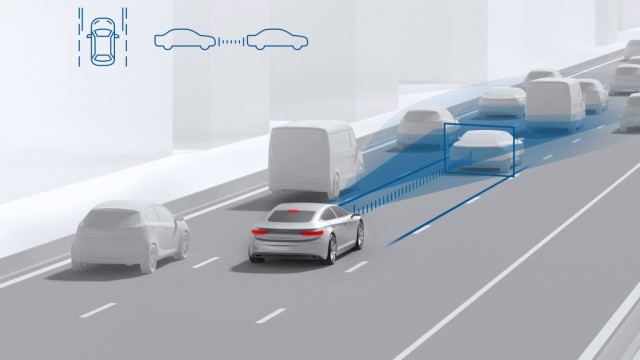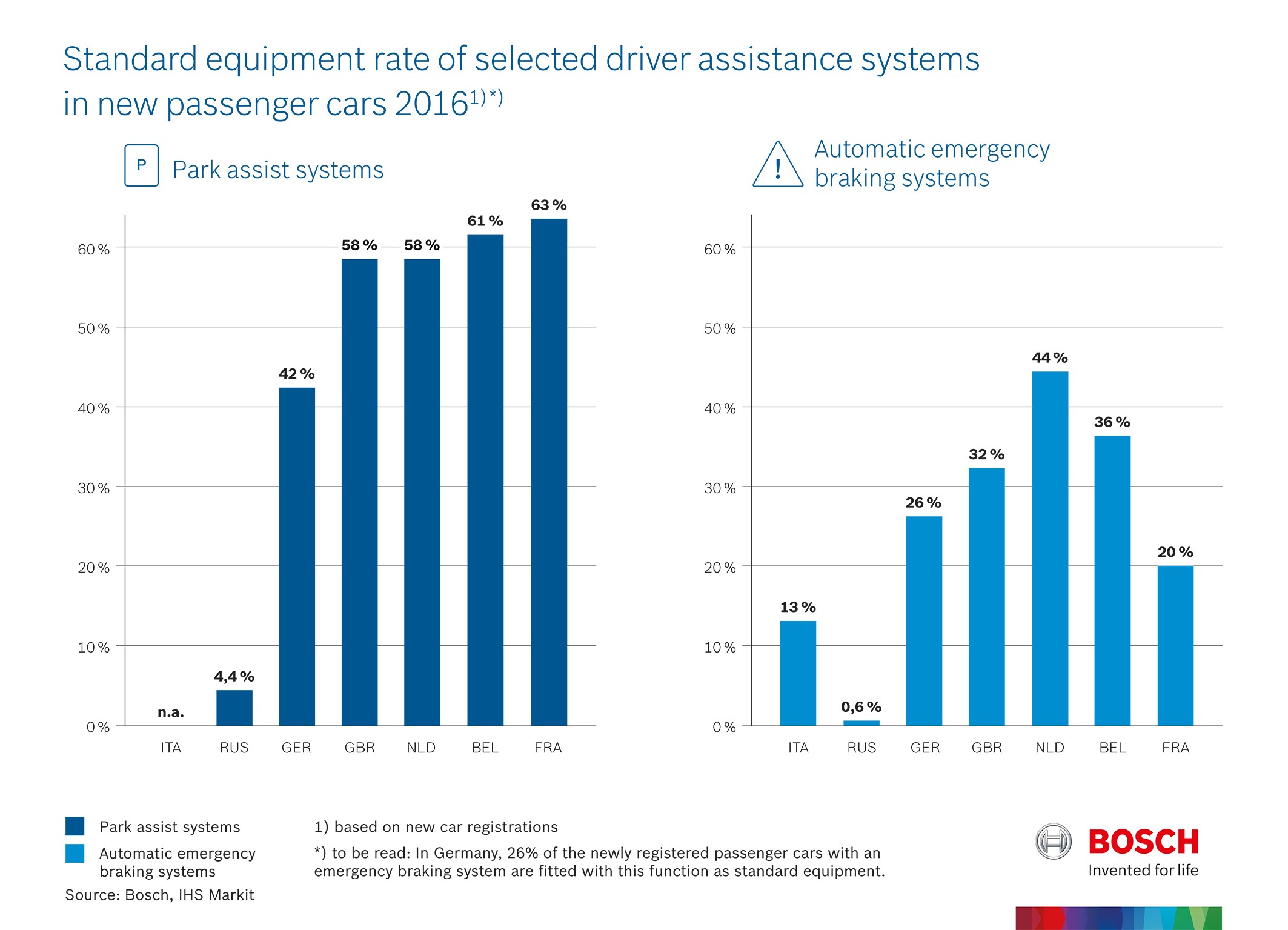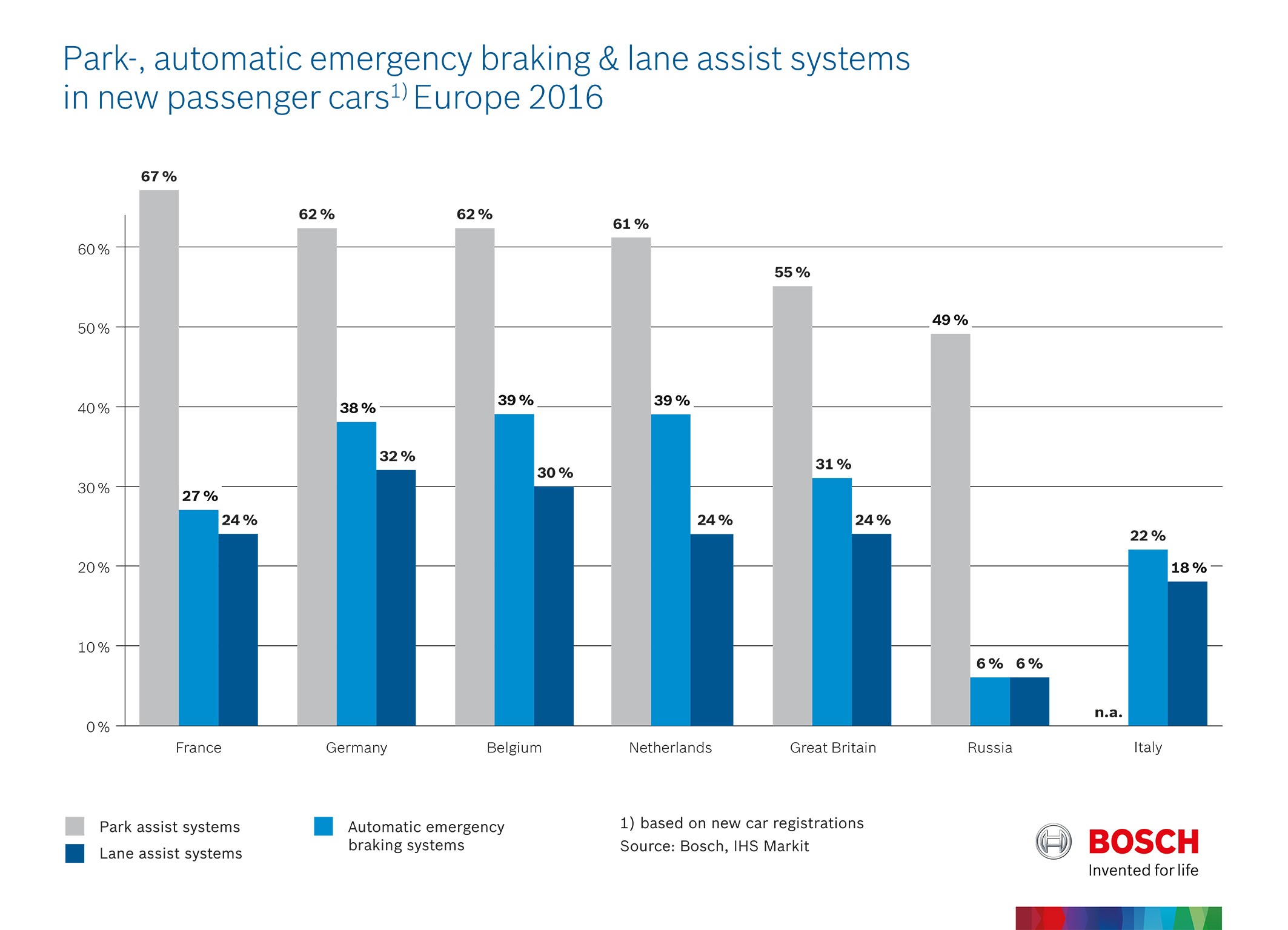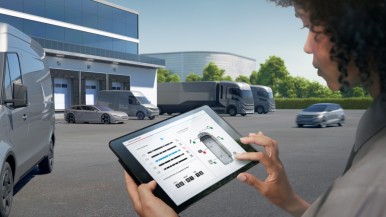Stuttgart, Germany – People buying new cars today in Germany and Europe are placing more and more value on having electronic assistants on board. “There is a clear trend: it will soon be just as natural to have cars fitted with driver assistance systems as it is with a radio and ESP,” says Bosch board of management member Dr. Dirk Hoheisel, referring to the results of a Bosch analysis carried out on the basis of new registration statistics for 2016. According to these statistics, parking and lane assist systems, as well as emergency braking systems are becoming increasingly popular. For example, 62 percent of new passenger cars registered in Germany in 2016 were equipped with some kind of parking assistance system – ranging from parking beepers to automatic parking assistants. Second place in the popularity scale was taken by automatic emergency braking systems that warn drivers or bring the car to a halt in an emergency. More than one in every three new cars registered in 2016 (38 percent) is able to help drivers to avoid accidents in this way. For more than a quarter of these vehicles, an emergency braking system is even part of the car’s standard fittings. Just behind in third place was driver drowsiness detection – fitted in 37 percent of all new passenger cars in 2016. However, the largest growth was recorded for lane assist systems. Compared with the previous year, there were twice as many of these on board new cars in 2016. Another interesting development was in relation to adaptive cruise control (ACC). Although barely fitted in four percent of newly registered cars in Germany in 2013, in 2016, this function was installed in nearly one in five new cars (19 percent).
About Bosch
Bosch has been present in Belgium since 1907. The Bosch Group employs approximately 1,150 associates in Belgium. The main sites are located in Tienen, Anderlecht and Mechelen.
The Bosch Group is a leading global supplier of technology and services. It employs roughly 417,900 associates worldwide (as of December 31, 2024). According to the pre-liminary figures, the company generated sales of 90.5 billion euros in 2024. Its operations are divided into four business sectors: Mobility, Industrial Technology, Consumer Goods, and Energy and Building Technology. With its business activities, the company aims to use technology to help shape universal trends such as automation, electrification, digitalization, connectivity, and an orientation to sustainability. In this context, Bosch’s broad diversification across regions and industries strengthens its innovativeness and robustness. Bosch uses its proven expertise in sensor technology, software, and services to offer customers cross-domain solutions from a single source. It also applies its expertise in connectivity and artificial intelligence in order to develop and manufacture user-friendly, sustainable products. With technology that is “Invented for life,” Bosch wants to help improve quality of life and conserve natural resources. The Bosch Group comprises Robert Bosch GmbH and its roughly 470 subsidiary and regional companies in over 60 countries. Including sales and service partners, Bosch’s global manufacturing, engineering, and sales network covers nearly every country in the world. Bosch’s innovative strength is key to the company’s further development. At 136 locations across the globe, Bosch employs some 86,900 associates in research and development, of which roughly 48,000 are software engineers.
The company was set up in Stuttgart in 1886 by Robert Bosch (1861–1942) as “Workshop for Precision Mechanics and Electrical Engineering.” The special ownership structure of Robert Bosch GmbH guarantees the entrepreneurial freedom of the Bosch Group, making it possible for the company to plan over the long term and to undertake significant upfront investments in the safeguarding of its future. Ninety-four percent of the share capital of Robert Bosch GmbH is held by Robert Bosch Stiftung GmbH, a charitable foundation. The remaining shares are held by Robert Bosch GmbH and by a corporation owned by the Bosch family. The majority of voting rights are held by Robert Bosch Industrietreuhand KG, an industrial trust. It is entrusted with the task of safeguarding the company’s long-term existence and in particular its financial independence – in line with the mission handed down in the will of the company’s founder, Robert Bosch.
Additional information is available online at www.bosch-press.be, www.bosch.be, www.bosch.com, www.iot.bosch.com, www.twitter.com/BoschBelgium, www.linkedin.com/company/bosch-belgium/ and YouTube: Bosch Belgium






